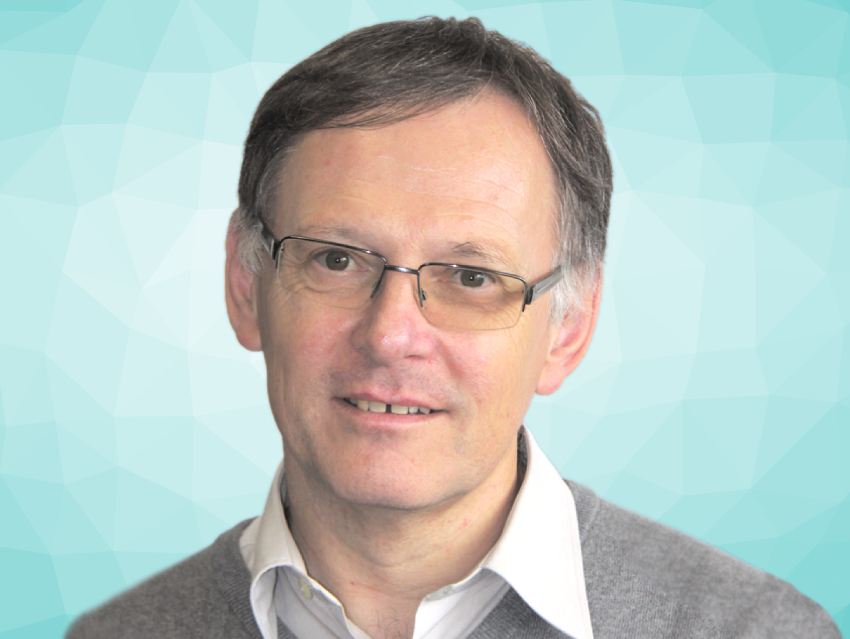Manfred Scheer, University of Regensburg, Germany, celebrates his 65th birthday on June 26, 2020.
Scheer’s research interests include the chemistry of substituent-free main group element ligand complexes, in particular of group 15 elements, as well as nano-sized, fullerene-like clusters prepared from pentaphosphaferrocene and Cu(I) halides and their supramolecular and capsule chemistry.
Manfred Scheer was born in Jüterbog, Germany, in 1955. He studied chemistry at the University of Halle-Wittenberg, Germany, where he received his Ph.D. in 1983 for work on Sn(II) chemistry. From 1983 to 1992, he was an Associate Scientist at the University of Halle-Wittenberg. He also was a Postdoctoral Fellow with V. E. Federov at the Institute of Inorganic Chemistry of the Russian Academy of Science, Novosibirsk, in 1985–1986, as well as a Visiting Fellow with G. Wilke at the Max Planck Institute for Coal Research in Mühlheim an der Ruhr, Germany, in 1990–1991. Scheer completed his habilitation at the University of Halle-Wittenberg in 1992 and then served as Guest Professor at Indiana University Bloomington, USA, until 1993 and as a Heisenberg-Fellow of the German Research Foundation (DFG) at the University of Karlsruhe, Germany, from 1993 to 1996. He became Associate Professor of Chemistry at the University of Karlsruhe in 1996. In 2004, Scheer joined the University of Regensburg as Full Professor of Chemistry.
Among other honors, Scheer has received the Horst-Dietrich-Hardt-Award in 2012, the Wilhelm Klemm Prize from the Gesellschaft Deutscher Chemiker (GDCh, German Chemical Society) in 2013, and an honorary doctorate from the Institute of Inorganic Chemistry of the Siberian Branch of the Russian Academy of Sciences. He is a Member of the European Academy of Sciences and Arts and serves as a Member of the Advisory Boards of Zeitschrift für anorganische und allgemeine Chemie, Inorganic Chemistry Frontiers, and Phosphorus, Sulfur, and Silicon and the Related Elements.
Selected Publications
- The Coordination Chemistry of the Phosphanylborane (C6H5)2PBH2·N(CH3)3 towards Copper(I) Salts,
Mehdi Elsayed Moussa, Jens Braese, Christian Marquardt, Michael Seidl, Manfred Scheer,
Eur. J. Inorg. Chem. 2020.
https://doi.org/10.1002/ejic.202000330 - Metal-Deficient Supramolecule Based on a Fivefold-Symmetric Building Block,
Jana Schiller, Eugenia Peresypkina, Alexander V. Virovets, Manfred Scheer,
Angew. Chem. Int. Ed. 2020.
https://doi.org/10.1002/anie.202004988 - P4 Activation by Main Group Elements and Compounds,
Manfred Scheer, Gábor Balázs, Andreas Seitz,
Chem. Rev. 2010, 110, 4236–4256.
https://doi.org/10.1021/cr100010e - Temperature Controlled Reversible Change of the Coordination Modes of the Highly Symmetrical Multitopic Ligand To Construct Coordination Assemblies: Experimental and Theoretical Studies,
Bo Zheng, Hao Dong, Junfeng Bai, Yizhi Li, Shuhua Li, Manfred Scheer,
J. Am. Chem. Soc. 2008, 130, 7778–7779.
https://doi.org/10.1021/ja800439p - Unprecedented interweaving of single-helical and unequal double-helical chains into chiral metal–organic open frameworks with multiwalled tubular structures,
Su-Na Wang, Hang Xing, Yi-Zhi Li, Junfeng Bai, Manfred Scheer, Yi Pan, Xiao-Zeng You,
Chem. Commun. 2007, 22, 2293–2295.
https://doi.org/10.1039/b701186e - 3.0.CO;2-4″ target=”_blank”>https://doi.org/10.1002/1521-3773(20020517)41:10<1737::AID-ANIE1737>3.0.CO;2-4
Also of Interest
- Scheer Receives Wilhelm Klemm Prize,
ChemViews Mag. 2013.
Professor Manfred Scheer, University of Regensburg, was awarded the Wilhelm Klemm Prize



